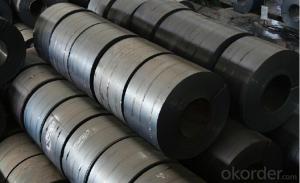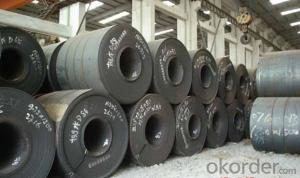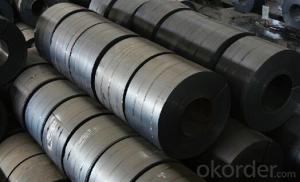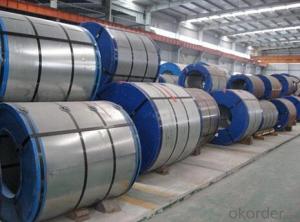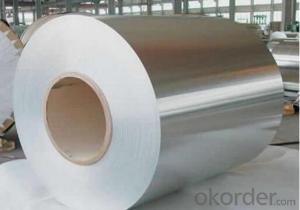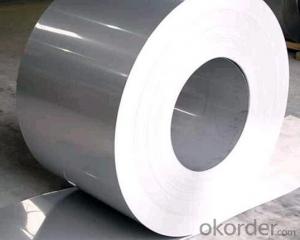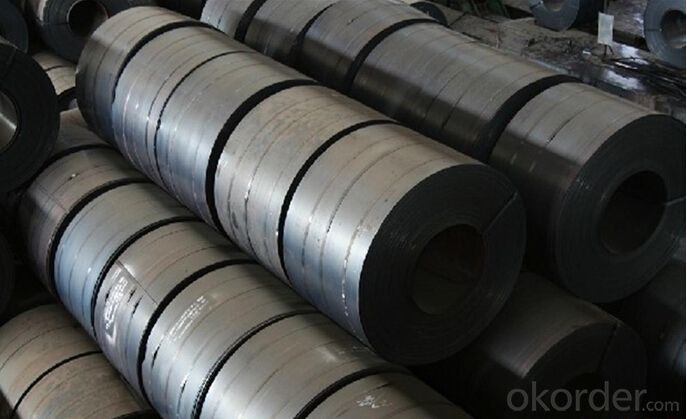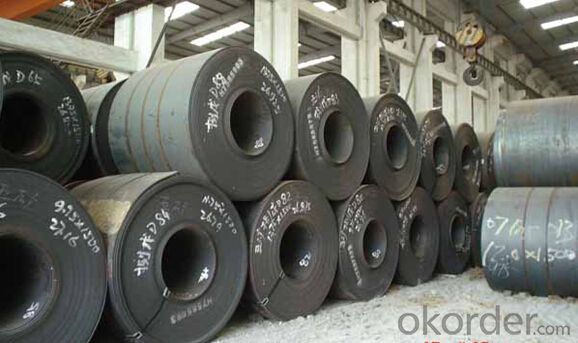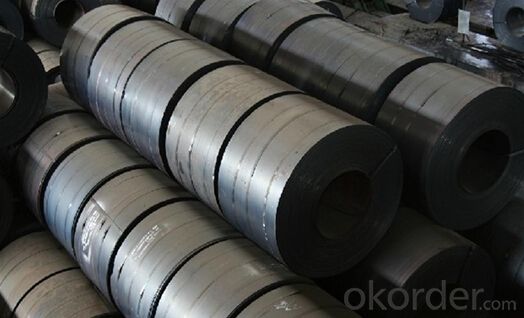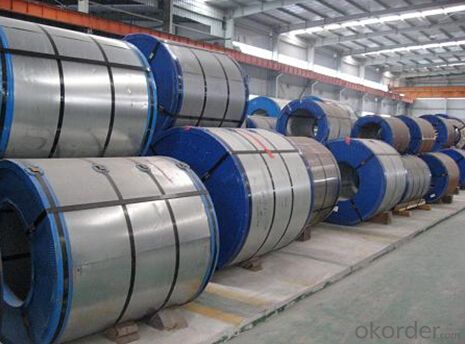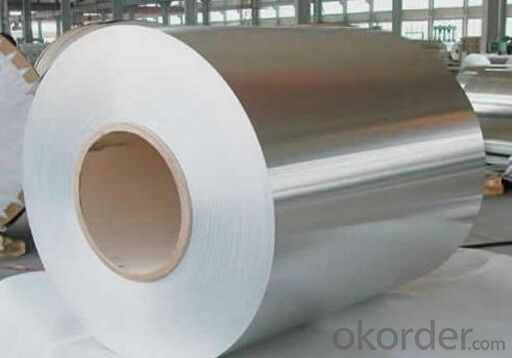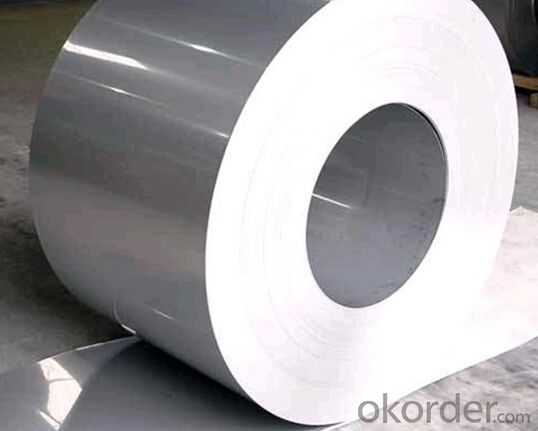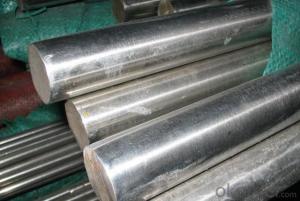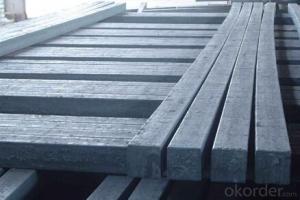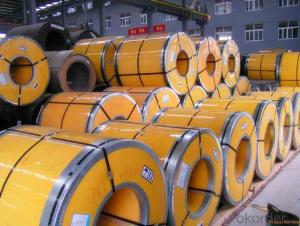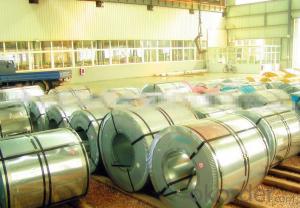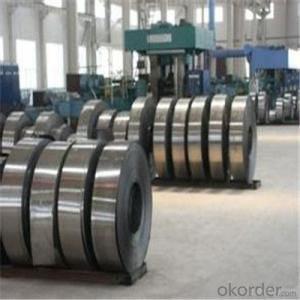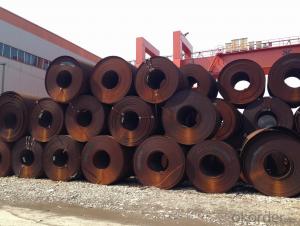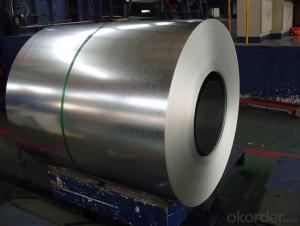Hot Rolled Steel Strips in Coils_Hot Rolled Coil
- Loading Port:
- Tianjin
- Payment Terms:
- TT OR LC
- Min Order Qty:
- 25 m.t.
- Supply Capability:
- 10000 m.t./month
OKorder Service Pledge
OKorder Financial Service
You Might Also Like
Specification
Hot Rolled Steel Strips in Coils_Hot Rolled Coil
Quick Details
Name | Hot Rolled Steel Coil |
Standard | GB/ASTM/SAE/AISI/DIN/JIS/EN/BS |
Surface Treatment: | Black/Peeling/Polished/Machined |
Delivery Condition: | Hot Rolled or Forged/Peeled or Black Surface |
Test | SGS/UT 100% Elements Testing |
Certificate: | ISO/Mill Certificate |
Service: | 24 hours online service / |
more than 20 years trading and manufacture | |
Quality Assurance: | the third party inspection, such as SGS, BV, TUV…etc. is acceptable |
Packaging Details: | Seaworthy Packaging or as per customer's packing instruction |
Specification
Product Name | Steel Grade | Thickness | Width | Application |
|
| |||
mm | m | |||
General structural steel | Q195,Q215A-Q235A/B/C/D | 1.9~25.4 | 0.7~2 | normal construction |
Q275A/B/C/D; SS330,SS400,SPHT1/2/3 | ||||
Low Carbon steel | SPCC,SPHC,St12,SAE1008; SPHD,SPCDK,St12,St13; SPHE,SPCE,St14 IF3 BH340 | 1.9~25.4 | 0.7~2 | Applied for cold rolling |
Carbon constructional quality steel | 08-45#,08Al15Al,S 20C S 35C | 1.9~25.4 | 0.7~2 | After being machined |
S 45C, K08AlZ06-10AlP | and hot treated to used as mechanical component | |||
Low-alloy constructional steel | SM490ASM490YA15Mn, Q345A Q345B Q345C Q345D | 1.9~25.4 | 0.7~2 | normal construction |
Hot Rolled Steel Chequered Coil | Q235 and custom | 2.0~ 8.0 | 0.9 |
|
Company Information
CNBM International Corporation is the most import and export platform of CNBM group(China National Building Material Group Corporation) ,which is a state-owned enterprise, ranked in 270th of Fortune Global 500 in 2015.
With its advantages, CNBM International are mainly concentrate on Cement, Glass, Iron and Steel, Ceramics industries and devotes herself for supplying high quality series of refractories as well as technical consultancies and logistics solution.
After-sale service | l CNBM provides the services and support you need for every step of our cooperation. We’re the business partners you can trust; you can relax and get on with doing business. |
l For any problem, please kindly contact us at any your convenient time, we’ll reply you in our first priority within 24 hours | |
Advantages | Industry experience over 20 years. |
Shipment of goods -More than 70 countries worldwide. | |
The most convenient transport and prompt delivery. | |
Competitive price with best service. | |
High technical production line with top quality products. | |
High reputation based on best quality products. |
Product Show
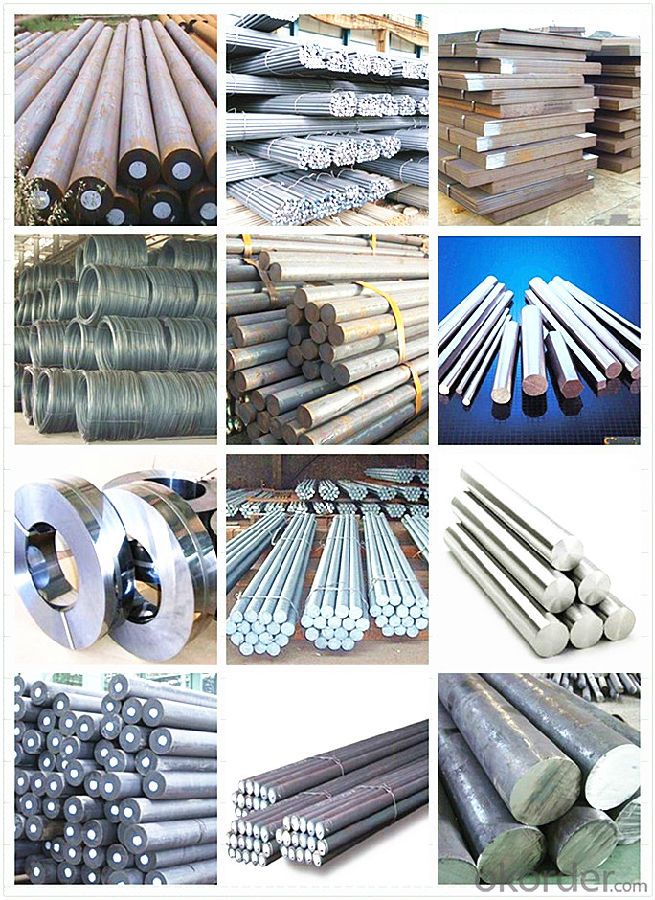
FAQ
Are you a trading company or manufacturer? | Manufacturer |
What’s the MOQ? | 3 metric ton |
What’s your delivery time? | 15-35 days after downpayment received |
Do you Accept OEM service? | Yes |
what’s your delivery terms? | FOB/CFR/CIF |
What's the Payment Terms? | 30% as deposit,70% before shipment by T/T |
Western Union acceptable for small amount. | |
L/C acceptable for large amount. | |
Scrow ,Paybal,Alipay are also ok | |
Why choose us? | Chose happens because of quality, then price, We can give you both. |
Additionally, we can also offer professional products inquiry, products knowledge train (for agents), smooth goods delivery, excellent customer solution proposals. | |
What's your available port of Shipment? | Main Port, China |
What’s your featured services? | Our service formula: good quality+ good price+ good service=customer's trust |
Where are your Market? | Covering more than 160 countries in the world |
- Q: What are the different surface protection methods used for special steel?
- To enhance the durability and resistance of special steel, several methods of surface protection are employed. Galvanizing is a commonly utilized technique, wherein a layer of zinc is applied to the steel surface. This shields the steel from corrosion and rusting, thereby prolonging its lifespan and preserving its appearance. Galvanizing can be executed through either hot-dip galvanizing or electroplating, depending on the specific requirements of the steel. Another method is powder coating, which entails the application of a dry powder to the steel surface, followed by curing at high temperatures. This results in the formation of a protective layer that is impervious to chipping, scratching, and fading. Powder coating is often chosen for its aesthetic benefits, as it offers a wide range of color options and can enhance the visual appeal of the steel. Furthermore, various types of paints and coatings can be employed to protect special steel. These coatings can be applied using a spray or brush technique, and they serve as a barrier against corrosion, chemicals, and UV radiation. Depending on the specific needs and environmental conditions, epoxy, polyurethane, and acrylic coatings are frequently utilized. Moreover, stainless steel possesses inherent resistance to corrosion due to its composition. However, to further safeguard it, passivation can be employed. Passivation involves a chemical treatment that eliminates iron particles from the surface, thus preventing corrosion and improving the steel's resilience against staining and pitting. Lastly, a layer of ceramic or enamel coating can be applied to protect special steel. These coatings offer high levels of resistance to heat, chemicals, and physical abrasion. They can be applied through spraying or dipping and are commonly used in environments where the steel will be exposed to extreme conditions or aggressive substances. In conclusion, the various surface protection methods utilized for special steel encompass galvanizing, powder coating, painting, passivation, and ceramic/enamel coating. These methods aim to enhance the steel's durability, corrosion resistance, and overall lifespan, ensuring that it can withstand diverse environmental factors while maintaining its structural integrity.
- Q: Can special steel be used in automotive engine components?
- Yes, special steel can be used in automotive engine components. Special steel, also known as alloy steel, is specifically designed to have enhanced properties such as increased strength, toughness, and heat resistance. These properties make it ideal for use in critical engine components that are subjected to high temperatures, stress, and wear. In automotive engines, special steel can be used in various components such as crankshafts, camshafts, connecting rods, valves, and piston rings. These components are subjected to extreme conditions, including high temperatures, pressure, and rotational forces. Special steel provides the required strength and durability to withstand these conditions, ensuring reliable engine performance and longevity. The use of special steel in automotive engine components offers several advantages. Firstly, it increases the strength and load-carrying capacity of the components, allowing them to handle higher power and torque outputs. Secondly, special steel improves the fatigue resistance and durability of the components, reducing the risk of failure and extending their service life. Lastly, special steel can withstand the high temperatures and thermal cycling experienced in the engine, preventing deformation and maintaining dimensional stability. Overall, the use of special steel in automotive engine components is crucial for achieving optimal performance, reliability, and longevity. It ensures that the engine can withstand the demanding conditions it operates under, providing a smoother and more efficient driving experience.
- Q: How is special steel recycled?
- Special steel is typically recycled through a process called electric arc furnace (EAF) steelmaking. During this process, scrap steel, including special steel, is melted down in an electric arc furnace. The furnace reaches extremely high temperatures, causing the steel to melt. Once melted, the impurities are removed, and the steel is then refined and shaped into new products. This recycling method helps to conserve natural resources, reduce energy consumption, and minimize environmental impacts associated with traditional steel production.
- Q: What are the main advantages of using special steel in the food processing industry?
- The main advantages of using special steel in the food processing industry are its high resistance to corrosion, durability, and hygiene. Special steel is specifically designed to withstand harsh environments, such as exposure to acidic or alkaline substances, which are common in food processing. It does not rust or react with food, ensuring the quality and safety of the final product. Additionally, special steel is easy to clean and maintain, making it an ideal choice for food processing equipment.
- Q: What are the specific requirements for special steel used in the aerospace fastener industry?
- The aerospace fastener industry requires special steel that meets specific requirements in order to ensure the safety, reliability, and performance of aircraft components. These requirements include: 1. High strength: Special steel used in aerospace fasteners must have exceptional strength to withstand the extreme forces and stresses experienced during flight. This is crucial for maintaining the structural integrity of aircraft components. 2. Corrosion resistance: Aerospace fasteners are exposed to various environmental conditions, including moisture, high temperatures, and chemicals. Therefore, the steel used must possess excellent corrosion resistance properties to prevent degradation and maintain the longevity of the fasteners. 3. Fatigue resistance: As aircraft components undergo repeated loading and unloading cycles during their lifetime, the special steel used in aerospace fasteners must exhibit exceptional fatigue resistance. This ensures that the fasteners can withstand the cyclic loading without fracturing or experiencing any structural failures. 4. Temperature resistance: Aerospace fasteners are subject to extreme temperature variations, ranging from sub-zero temperatures at high altitudes to elevated temperatures near engines. The steel used should have excellent temperature resistance to maintain its mechanical properties under these conditions. 5. Lightweight: In the aerospace industry, weight reduction is crucial to improve fuel efficiency and increase the payload capacity of aircraft. Therefore, special steel used in aerospace fasteners should be lightweight without compromising on strength and other necessary properties. 6. Non-magnetic properties: Some aerospace applications require non-magnetic fasteners to prevent interference with sensitive electronic equipment, such as avionics and navigation systems. Therefore, the special steel used in such cases must exhibit non-magnetic properties. 7. Compliance with industry standards: Special steel used in the aerospace fastener industry must meet the stringent standards and specifications set by regulatory bodies, such as the International Organization for Standardization (ISO) and the National Aerospace and Defense Contractors Accreditation Program (NADCAP). Compliance with these standards ensures the quality and reliability of the fasteners. Overall, the specific requirements for special steel used in the aerospace fastener industry encompass high strength, corrosion resistance, fatigue resistance, temperature resistance, lightweight properties, non-magnetic characteristics, and compliance with industry standards. Meeting these requirements is essential to ensure the safety and performance of aircraft components.
- Q: Can special steel be used for making oil and gas industry components?
- Yes, special steel can be used for making oil and gas industry components. Special steels, such as stainless steel and alloy steel, are often preferred in the oil and gas industry due to their exceptional mechanical properties, corrosion resistance, and high temperature resistance. These components are exposed to harsh operating conditions, including corrosive environments, extreme temperatures, and high pressures. Special steels are specifically designed to withstand these conditions and maintain their integrity and performance over time. The use of special steels in the oil and gas industry ensures the reliability, durability, and safety of critical components, such as valves, pipes, fittings, and drilling equipment.
- Q: How does special steel contribute to reducing product defects?
- Special steel contributes to reducing product defects by offering superior strength, durability, and corrosion resistance compared to regular steel. This ensures that the components made from special steel are less prone to breakage, wear and tear, or damage during manufacturing, transportation, or usage. Special steel's high-quality characteristics provide a more reliable and consistent performance, resulting in fewer product defects and improved overall product quality.
- Q: How does special steel perform in terms of fatigue resistance?
- Special steel typically exhibits excellent fatigue resistance due to its high strength, toughness, and ability to withstand repeated loading and stress cycles without failure. Its unique composition and manufacturing processes enhance its resistance to fatigue, making it a preferred choice in applications where durability and longevity are critical, such as aerospace, automotive, and engineering industries.
- Q: How does special steel resist wear and tear?
- Special steel resists wear and tear due to its unique composition and manufacturing process. It is typically alloyed with elements like chromium, nickel, and molybdenum, which enhance its hardness, strength, and corrosion resistance. Additionally, special steel undergoes heat treatment processes such as quenching and tempering, which further increase its durability and ability to withstand various mechanical stresses. This combination of alloying elements and heat treatment results in a steel that is highly resistant to wear, friction, and fatigue, making it suitable for demanding applications where durability is crucial.
- Q: What is special steel? What is special steel?
- Special steel is the abbreviation of special steel, which is the most important factor in the steel industry of most industries in the national economy, such as machinery, automobile, military industry, chemical industry, household electrical appliance, shipping, traffic, railway and new industries.
Send your message to us
Hot Rolled Steel Strips in Coils_Hot Rolled Coil
- Loading Port:
- Tianjin
- Payment Terms:
- TT OR LC
- Min Order Qty:
- 25 m.t.
- Supply Capability:
- 10000 m.t./month
OKorder Service Pledge
OKorder Financial Service
Similar products
Hot products
Hot Searches
Related keywords
